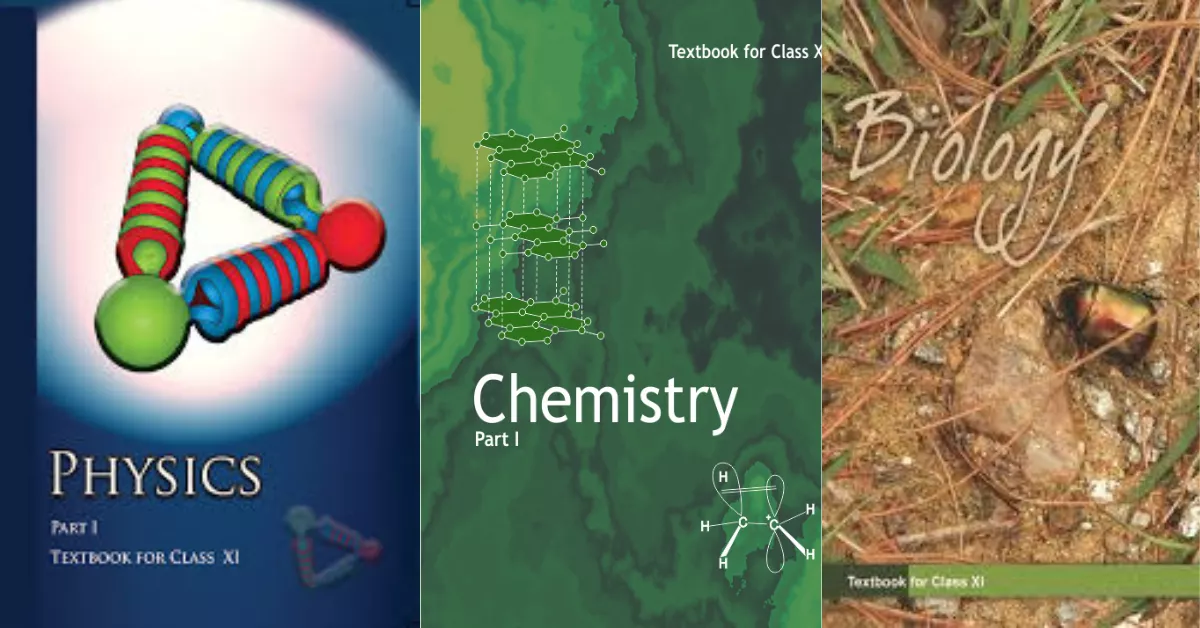NCERT for NEET UG 2026: Students require a focused, strategic, and well-planned approach for NEET UG 2026 Preparation. Among the numerous study materials available, coaching modules, YouTube lectures, reference books, and question banks, one resource is always at the core of NEET preparation: NCERT textbooks.
Some students underestimate NCERT, believing that supplementary books are key to scoring high. However, year after year, toppers, teachers, and exam analysis confirm that NCERT is enough for NEET preparation.
This article explains why NCERT should be at the center of your preparation strategy and how to use it effectively for NEET UG 2026.
Why NEET UG Is Based on NCERT Books
NEET UG exam assesses conceptual and factual understanding with the ability to solve application-based questions. Since NEET is aligned with the CBSE curriculum, NCERT becomes the primary reference source for designing the question paper.
Most of the questions, especially in Biology, are taken directly or indirectly from NCERT lines, diagrams, and tables. Even in Physics and Chemistry, conceptual knowledge and definitions come from NCERT.
NCERT Biology: The Most Scoring Component of NEET
Biology is the highest-weightage subject in NEET UG. It has 50% weightage in exam accounting for 90 questions out of 180. The advantage of Biology is that almost 85-95% of questions come from the NCERT textbooks. These questions includes exact words, diagrams, and statements taken from the textbook.
Many aspirants fail to score high because they skip minute details such as:
- Notes and highlights in boxes
- Scientific names
- Tables and short summaries
- NCERT diagrams and labelling
Mastering NCERT Biology ensures accuracy, direct question solving, and high-scoring potential.
Read Also: NEET UG 2026 Biology Strategy: Chapter-Wise Study Plan Based on NCERT+PYQ Weightage
How NCERT Helps in Chemistry for NEET
Chemistry is divided into Physical, Organic, and Inorganic sections, and NCERT plays a different role in each.
Physical Chemistry requires conceptual clarity before solving numerical problems. Definitions, laws, and basic formulas given in the NCERT provide that foundation.
For Organic Chemistry, NCERT provides mechanism basics, reaction patterns, IUPAC naming, and exceptions, all of which are tested in NEET. Memorising reaction examples and key rules from the NCERT allows faster recognition during the exam.
Inorganic Chemistry is the section where NCERT is non-negotiable. Believe me it is more than enough even for JEE Advance students. Questions based on blocks, periodic trends, and coordination compounds come word-for-word from NCERT chapters.
Read Also: NEET UG 2026 Chemistry: Chapter-Wise Weightage & Study Plan Based on NCERT+PYQ
Role of NCERT in NEET Physics Preparation
Most student see Physics as the toughest subject in NEET because numerical problems. While question solving improves speed and accuracy, NCERT still plays a vital role.
NCERT Physics provides:
- Correct scientific terminology
- Standard definitions and formulas
- Conceptual clarity before advanced-level numerical practice
Also, theoretical questions in Physics are generally based entirely on the NCERT lines and explanations. So even though solving problems is essential, NCERT remains the conceptual backbone.
Also Read: NEET UG 2026 Physics Strategy: Chapter-Wise Study Plan Based on NCERT+PYQ Weightage
Exam Pattern and NCERT Relevance in NEET UG 2026
NEET UG 2026 consists of 180 questions to be solved in 180 minutes, testing both speed and accuracy. The majority of these questions come directly from NCERT Books. Each year, post-exam analysis confirms that NCERT coverage directly impacts score performance.
Students who read NCERT multiple times retain factual and conceptual content better than those who rely only on reference books.
Read Also: NEET UG Exam Pattern 2026: Marking Scheme, Total Marks, Exam Mode, Duration, etc.
NCERT Diagrams and Flowcharts: A High-Accuracy Scoring Zone
NCERT diagrams are often used in NEET to create questions asked in the form of:
- Labeling
- Identification
- Matching
- True/False
Students who revise diagrams repeatedly can answer such questions quickly and confidently. The same applies to NCERT flowcharts, especially in Biology and Chemistry.
NCERT Language and Keywords Matter in NEET
NEET often tests exact scientific statements. For example, adding or removing a single word such as “always,” “mostly,” or “never” can change the meaning of a sentence. NCERT teaches students the accurate scientific phrasing necessary to avoid confusion in the exam.
Therefore, reading NCERT like a reference manual, with underlining, highlighting, and note-making, increases clarity and retention.
How to Study NCERT Effectively for NEET UG 2026
Using NCERT intelligently saves time and improves results. An ideal strategy includes:
- Reading each chapter completely at least three to four times.
- Learning all diagrams, tables, and summary boxes.
- Making small handwritten notes based on important statements and examples.
- Solving NCERT-based questions and checking knowledge gaps.
- Using NCERT-based question banks and mock tests for accurate practice.
This approach builds confidence and reduces exam day anxiety.
NCERT Plus Approach: When and Why to Use Reference Books
Reference books are useful, but only after mastering the NCERT. Using them too early leads to confusion and information overload. Once the NCERT concepts are clear, additional books help refine application skills, diversify question-solving patterns, and strengthen numerical solving ability.
Therefore, the correct approach is to first master NCERT thoroughly, then practice NCERT-based MCQs for application, and finally use advanced reference books and mock tests to strengthen accuracy, speed, and exam-level problem solving.
Read Also: NEET UG 2026 Preparation Strategy: Best Books, Study Plan etc
NCERT is not just another book for NEET UG; it is the guidebook, blueprint, and foundation of the examination structure. Aspirants who give NCERT the highest priority improve retention, accuracy, and confidence during the exam.
For NEET UG 2026, students should begin with NCERT, stay consistent, revise repeatedly, and combine NCERT knowledge with high-quality practice. Those who follow this approach significantly improve their chances of scoring well and securing a medical seat.
NCERT remains the most important and reliable resource for NEET, and mastering it is the first step toward becoming a successful doctor.

